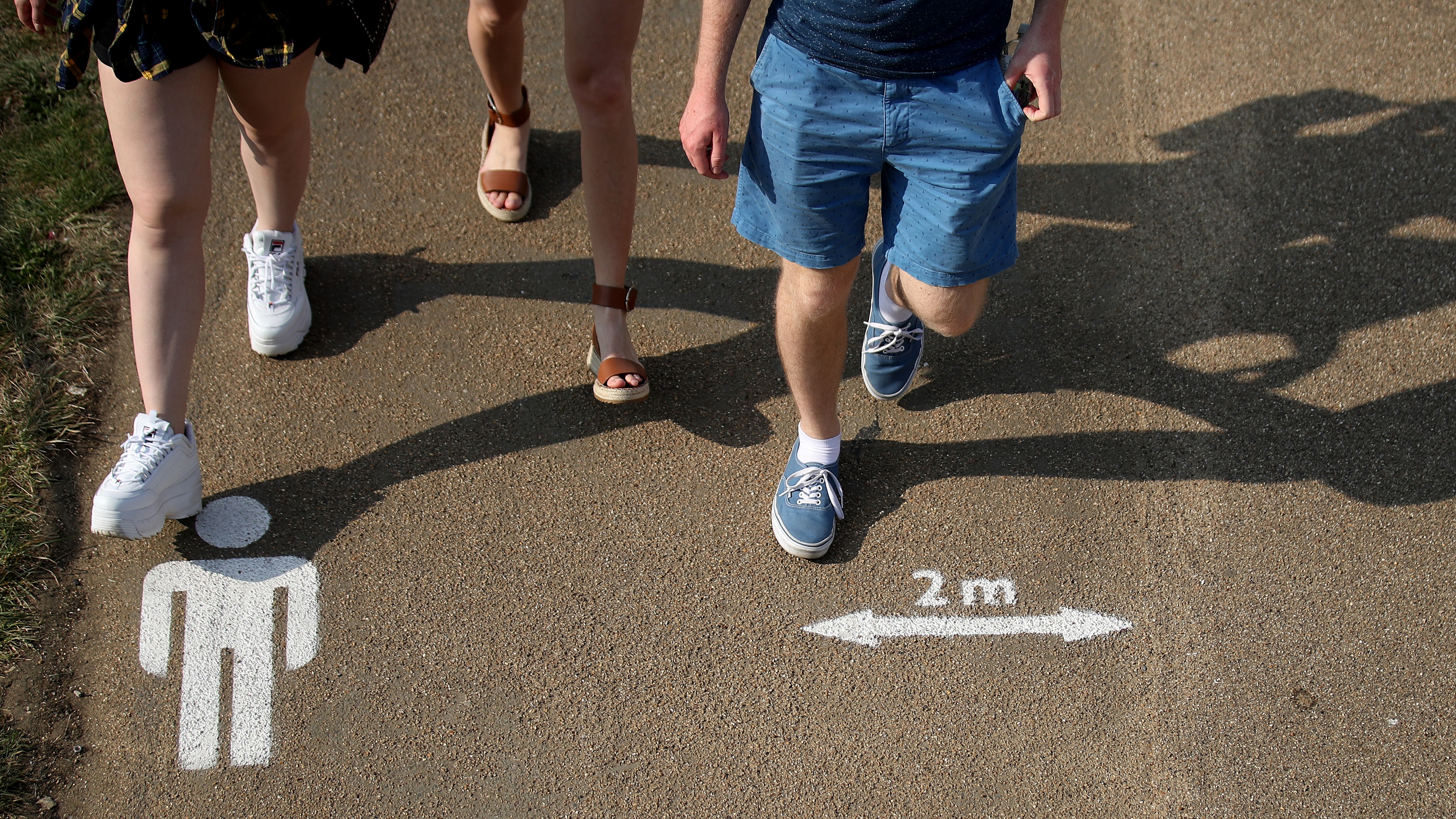What we know about Covid transmission
New PHE data suggests single vaccine jab can halve risk of passing on the coronavirus

A free daily email with the biggest news stories of the day – and the best features from TheWeek.com
You are now subscribed
Your newsletter sign-up was successful
Just one dose of the Pfizer-BioNTech or Oxford-AstraZeneca vaccines can cut transmission of Covid-19 by up to nearly 50%, a new study has found.
The Public Health England research found that people who had one dose of either of the jabs but became infected with the coronavirus at least three weeks later were between 38% and 49% less likely to spread it to other members of their households, compared with unvaccinated people.
Welcoming the “terrific news”, Health Secretary Matt Hancock said that the data “further reinforces that vaccines are the best way out of this pandemic”.
The Week
Escape your echo chamber. Get the facts behind the news, plus analysis from multiple perspectives.

Sign up for The Week's Free Newsletters
From our morning news briefing to a weekly Good News Newsletter, get the best of The Week delivered directly to your inbox.
From our morning news briefing to a weekly Good News Newsletter, get the best of The Week delivered directly to your inbox.
How is Covid-19 transmitted?
Guidance from the World Health Organization (WHO) says the coronavirus can spread “from an infected person’s mouth or nose in small liquid particles when they cough, sneeze, speak, sing or breathe heavily”. These liquid particles are known as larger “respiratory droplets” or smaller “aerosols”.
If these get into another person’s mouth, nose or eyes, they can catch the virus. The WHO guidance, last updated in October, says the risk is greatest when people are in close contact, particularly when spending long periods of time together in “indoor, crowded and inadequately ventilated spaces”.
Is it transmitted on surfaces?
A free daily email with the biggest news stories of the day – and the best features from TheWeek.com
The WHO says the virus can also spread via contaminated surfaces such as tables, doorknobs and handrails.
However, Nature magazine says that after a year of gathering data, researchers believe it is “people, not surfaces, that should be the main cause for concern”.
“Surface transmission, although possible, is not thought to be a significant risk,” the magazine concludes.
How do vaccines help?
Experts had been awaiting data on whether vaccinated individuals could unknowingly pass the virus on to others despite having no symptoms themselves.
Clinical trials for vaccines such as the Pfizer-BioNTech jab did not look at their ability to block transmission, because “with thousands of people being hospitalised and dying every day, the first priority was to measure whether a vaccine prevented severe disease and death”, National Geographic explains.
But a consensus is beginning to emerge that the vaccines are having an impact on infection rates too.
The latest PHE study, which is yet to be peer-reviewed, looked at data on 57,000 people living in a total of 24,000 households who were in contact with a vaccinated person, compared with nearly one million contacts of unvaccinated people.
“Protection was seen from around 14 days after vaccination, with similar levels of protection regardless of age of cases or contacts,” said PHE in a statement.
Dr Peter English, a retired consultant in communicable disease control, said: “The evidence was already mounting that vaccination will prevent people from becoming infected, and if they aren’t infected, they can’t transmit the infection.”
-
 ‘Restaurateurs have become millionaires’
‘Restaurateurs have become millionaires’Instant Opinion Opinion, comment and editorials of the day
-
 Earth is rapidly approaching a ‘hothouse’ trajectory of warming
Earth is rapidly approaching a ‘hothouse’ trajectory of warmingThe explainer It may become impossible to fix
-
 Health insurance: Premiums soar as ACA subsidies end
Health insurance: Premiums soar as ACA subsidies endFeature 1.4 million people have dropped coverage
-
 A Nipah virus outbreak in India has brought back Covid-era surveillance
A Nipah virus outbreak in India has brought back Covid-era surveillanceUnder the radar The disease can spread through animals and humans
-
 Covid-19 mRNA vaccines could help fight cancer
Covid-19 mRNA vaccines could help fight cancerUnder the radar They boost the immune system
-
 The new Stratus Covid strain – and why it’s on the rise
The new Stratus Covid strain – and why it’s on the riseThe Explainer ‘No evidence’ new variant is more dangerous or that vaccines won’t work against it, say UK health experts
-
 RFK Jr. vaccine panel advises restricting MMRV shot
RFK Jr. vaccine panel advises restricting MMRV shotSpeed Read The committee voted to restrict access to a childhood vaccine against chickenpox
-
 RFK Jr. scraps Covid shots for pregnant women, kids
RFK Jr. scraps Covid shots for pregnant women, kidsSpeed Read The Health Secretary announced a policy change without informing CDC officials
-
 New FDA chiefs limit Covid-19 shots to elderly, sick
New FDA chiefs limit Covid-19 shots to elderly, sickspeed read The FDA set stricter approval standards for booster shots
-
 RFK Jr.: A new plan for sabotaging vaccines
RFK Jr.: A new plan for sabotaging vaccinesFeature The Health Secretary announced changes to vaccine testing and asks Americans to 'do your own research'
-
 Five years on: How Covid changed everything
Five years on: How Covid changed everythingFeature We seem to have collectively forgotten Covid’s horrors, but they have completely reshaped politics